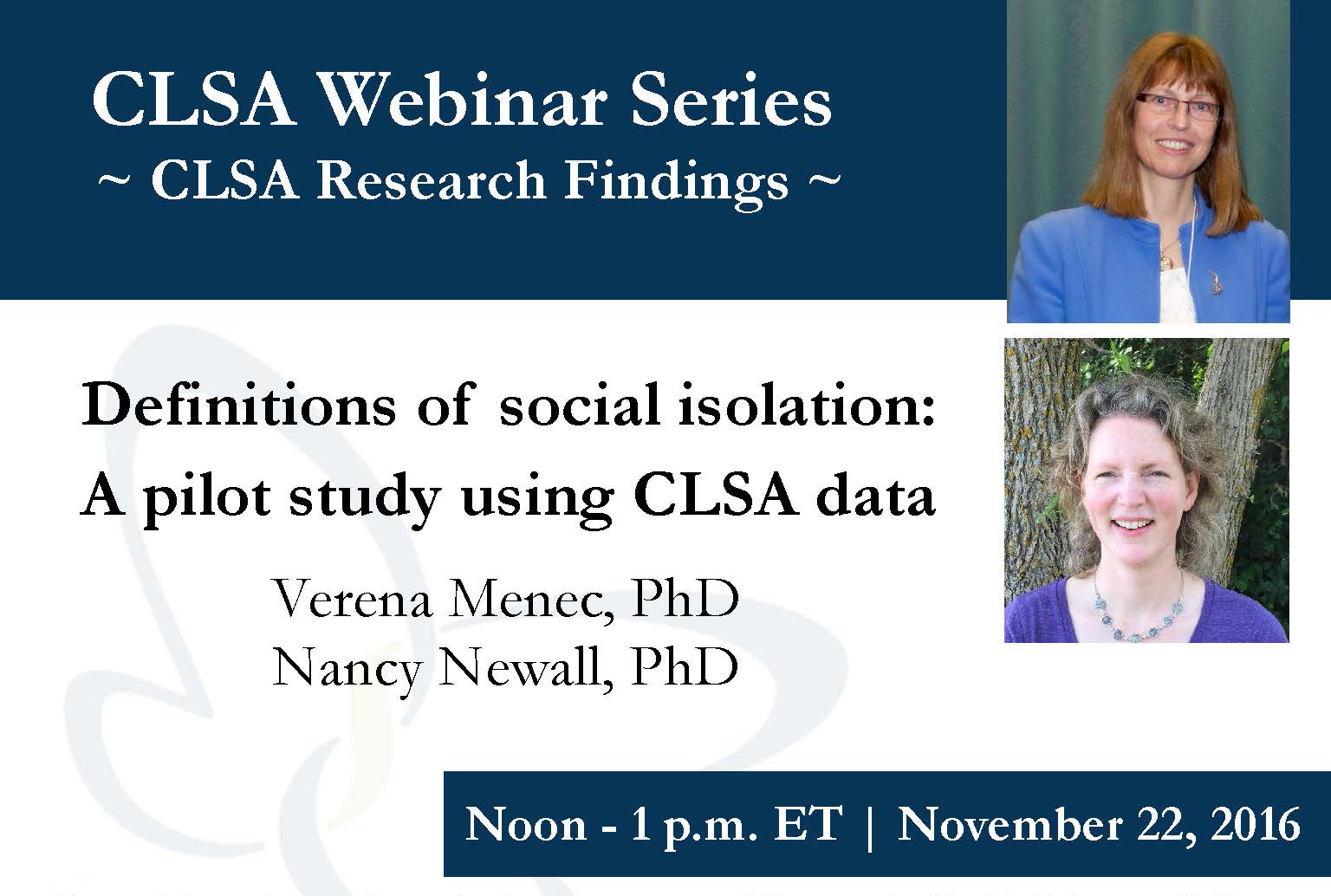November 22, 2016
Year:
Applicant:
Institution:
Email:
verena.menec@umanitoba.ca
Keywords:
Project ID:
141205
Approved Project Status:
Project Summary
Research evidence shows that social isolation and loneliness are health risks. What is less clear, however, is what can be done to reduce social isolation and loneliness. Intervention studies have been conducted, but few conclusions can be drawn because of inconsistent definitions and approaches. Moreover, an assumption seems to be that the same intervention would work for everybody, when different interventions may be needed. For example, those who are socially isolated and also have mental health problems like depression may need a different intervention than people without depression. A major challenge is also how to identify people who are socially isolated or lonely, as there is no easy-to-use screening tool available. In this pilot project, we will explore if there are different types of people who are socially isolated or lonely. We will also see if there is a simple way to identify people who are socially isolated or lonely.
Project Findings
We found that cluster analyses of social network variables (e.g., frequency of seeing family members) revealed six social network groups. Social support generally declined as social networks became more restricted. Moreover, less diverse social network structures were generally associated with less social support which, in turn, was related to more depressive symptoms and lower life satisfaction. Finally, a third set of analyses systematically compared single-item and composite indicators of social isolation among individuals with different socio-demographic and health characteristics. The results highlight how different ways of defining social isolation can impact who is identified as being socially isolated in a given population.
